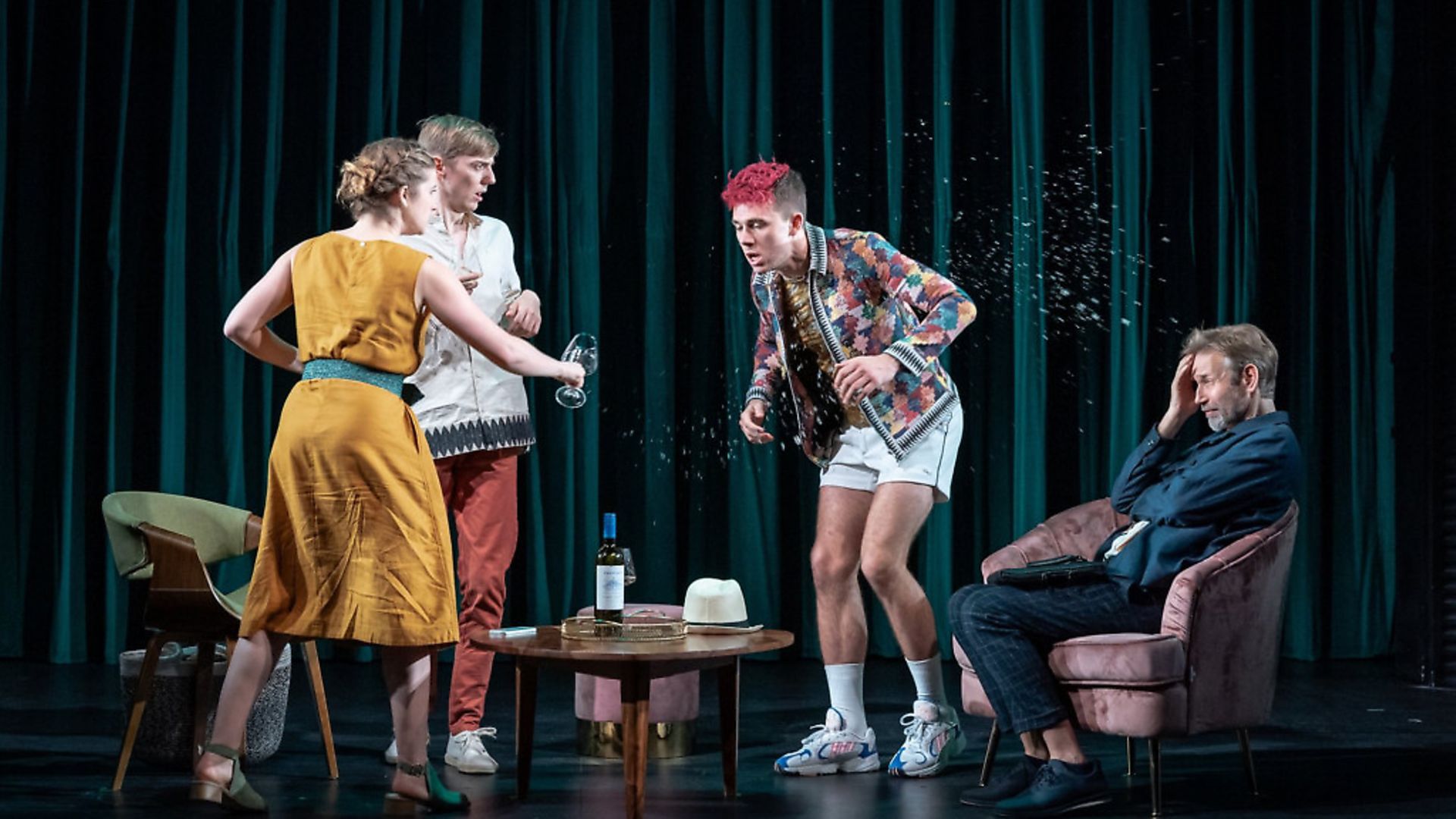
Bold, challenging theatre which encapsulates the joy and misery of that crazy thing called love.
Kiln Theatre, London, until July 6
“All you need to know about A Doll’s House is a woman walks,” says Suzannah, the bohemian actress played by Sirine Saba in Samuel Adamson’s new play, Wife. Ibsen’s classic hastened the march towards greater female emancipation, and the divorce courts, as both parties in marriages and relationships realised happiness sometimes means readjustments, up to and including going solo.
Perhaps only a theatre as radical as Indhu Rubasingham’s Kiln would ever have the temerity to not just see Ibsen as an inspiration for a full-on analysis of marriage, but also to question what it has come to mean.
The intention to make sport with our perceptions is made clear at the outset when the year 1959 is put up in lights and the audience is jarringly confronted with two characters in Victorian costume.
Only they are in the play-within-the-play and afterwards Daisy and Robert – Karen Fishwick and Joshua James – go back stage to see Suzannah – inevitably Nora in the production of A Doll’s House they’ve just seen – and it is clear that whatever lust there is in the dressing room is between the two women.
Love has a tendency to make fools of those whose lives it touches and it randomly dispenses joy as well as misery. Adamson’s play gets that entirely.
The action shifts between generations and attitudes and soon it’s 1988 and Ivar and his young lover Eric – Joshua James and Calam Lynch – are drinking in a pub. The older man accuses the younger man of being so deep in the closet he’s “in Narnia”, but Section 28, a homophobic publican and the fact he’s far from established financially makes him see no reason to emerge. They talk, among other things, of The Swimming Pool Library, which Eric deems to be a “s*** book”, which got a somewhat regrettable laugh, given its author Alan Hollinghurst was in the first night audience.
Next up is Clare and Finn – Fishwick and James, doubling up – meeting the older Ivar (Richard Cant) who Clare wants to attend their wedding as he had a brief fling with her father, Eric.
It’s an awkward encounter and it makes it clear how difficult human beings find it to talk about things that matter the most to them.
The play ends in the period where it began, with Suzannah’s first meeting with Daisy, and that is where she makes her first pass.
Lesbian scenes have a not always impressive history – one thinks of Coral Browne twiddling with Susannah York’s breasts in the film The Killing of Sister George with all the enthusiasm of someone trying to find Radio 4 on an old transistor – but this is done more convincingly. Rubasingham knows you can show more by showing less and often there’s greater eloquence in silence than in words.
This is bold, challenging theatre, which ultimately shows that, for all the hopes Ibsen had for lovers in the late 19th century when he wrote A Doll’s House, they’re mostly still a long way from achieving them.
Rating: 5/5










